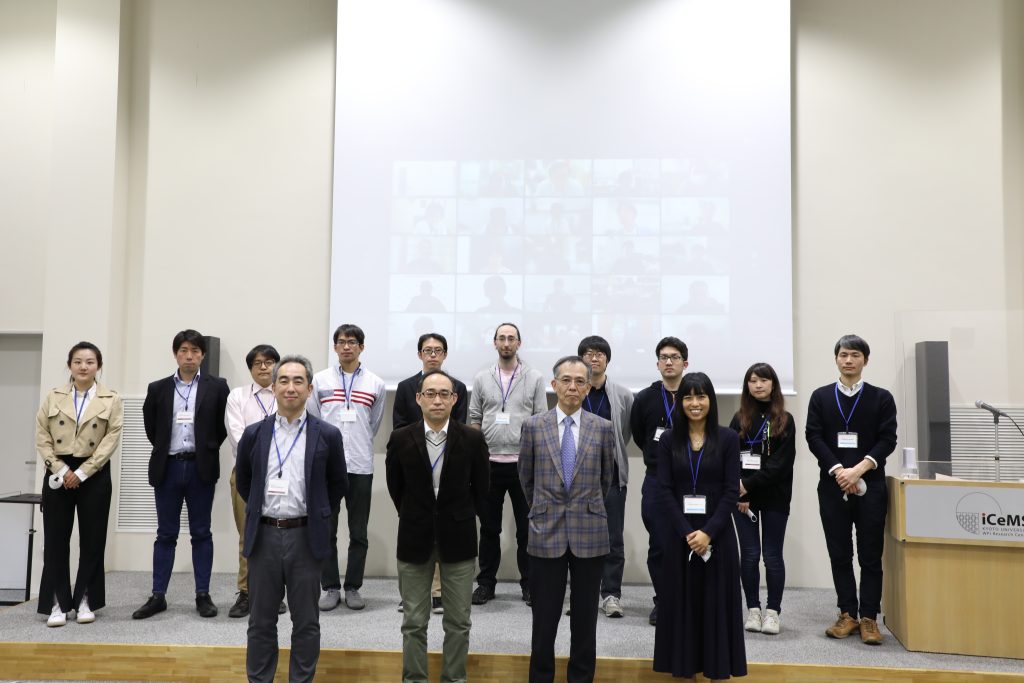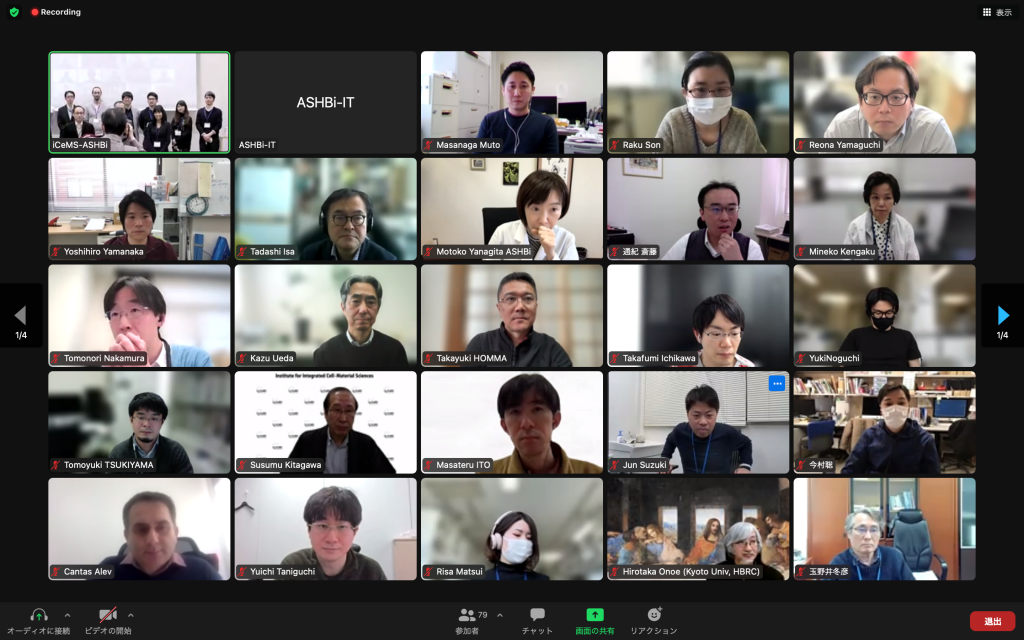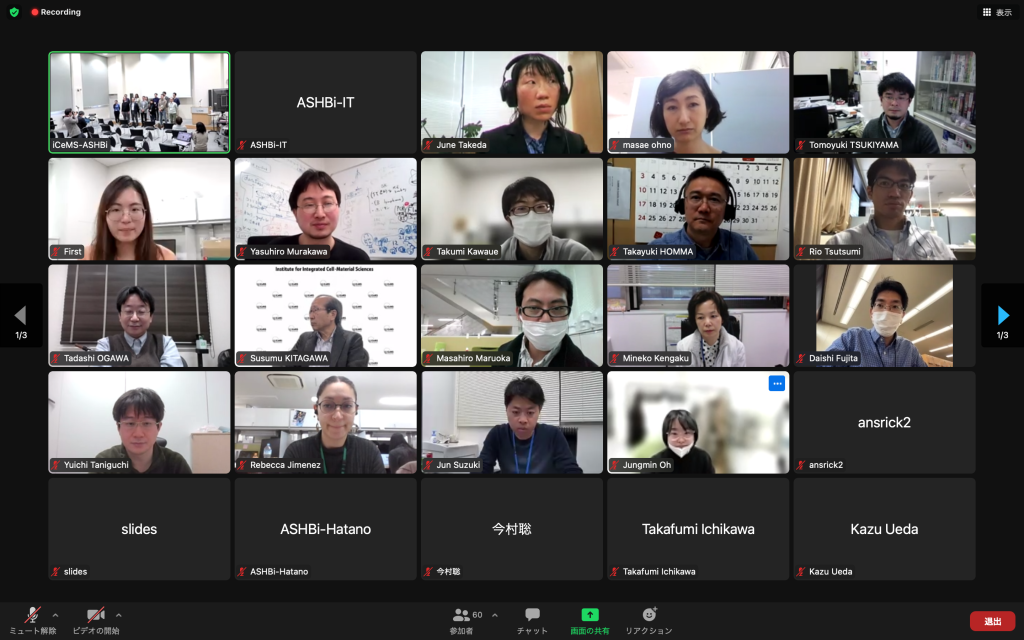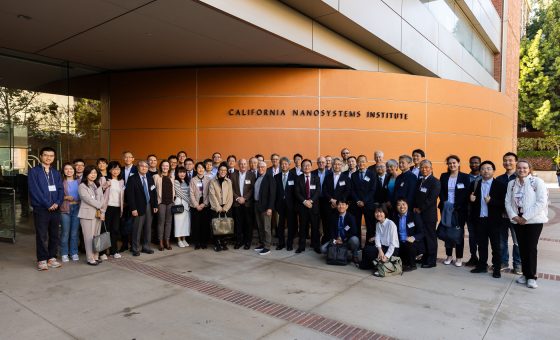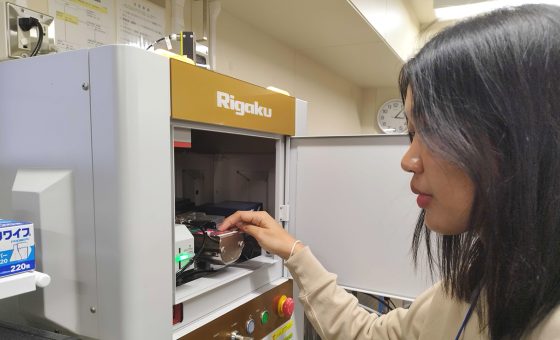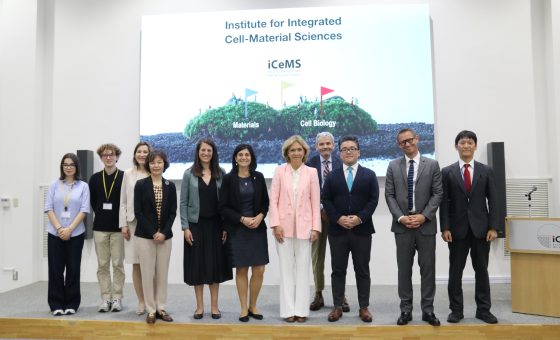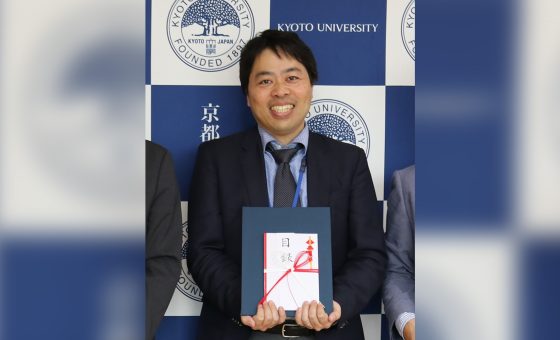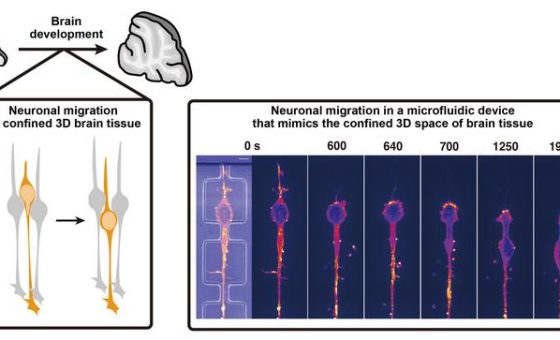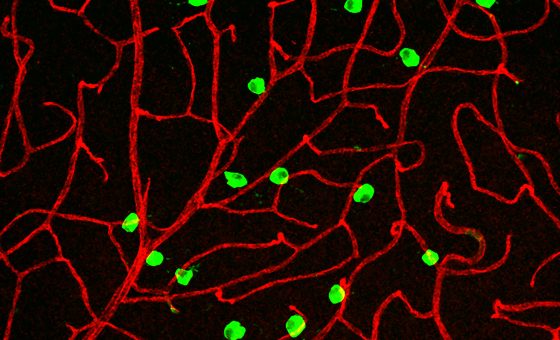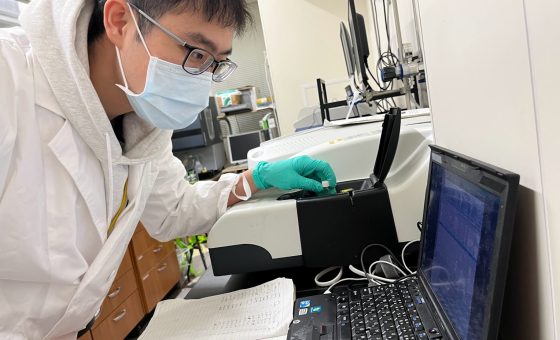iCeMS-ASHBi Exchange Gathering
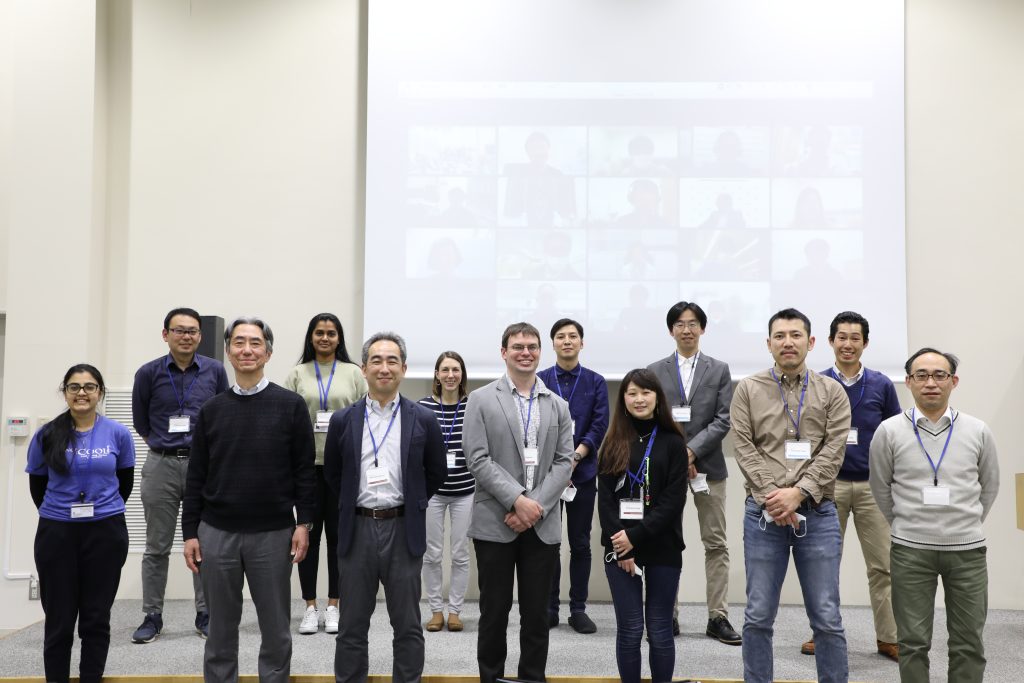
On March 24, the two WPI Research Centers which are a part of Kyoto University Institute for Advanced Study (KUIAS), iCeMS and ASHBi, held a hybrid exchange gathering to share information and promote collaboration between the institutes. Along with over 100 online registered participants, two groups of speakers gathered in the iCeMS seminar room to give live presentations and take part in active questions and answer sessions.
Ken-ichiro Kamei (iCeMS) and Ryu Yamamoto (ASHBi), co-organizers of the exchange, worked hard to bring the two institutions together for the day. Yamamoto opened the meeting with a sentiment which would be repeated many times during the day, “We hope this gathering will be an opportunity for collaboration especially between young researchers of ASHBi and iCeMS.”
KUIAS Director-General Shigefumi Mori, “Both institutes have promising young researchers in biology and mathematics drawing talent both domestically and from overseas. I am so glad to have a gathering to promote their interaction.”
WPI Program Director Akira Ukawa shared the history and four missions of the WPI and said, “WPI is all about getting connected – fusion, internationalization, and science which builds connections to each other.”
iCeMS Director Susumu Kitagawa and ASHBi Director Mitinori Saitou each introduced their respective institutes. Laying out iCeMS researchers’ focus on creating new materials inspired by cell biology and a future goal of creating fusion research for human healthcare; and ASHBi’s four research groups studying developmental biology, genome informatics, primate models and basic/clinical medicine working under the theme of understanding what biological traits make us human and how knowing these traits can help cure disease, the stage was set for a deep dive into the ongoing research at both institutes.
Between the morning and afternoon sessions participants were treated to six in depth presentations and twenty-six flash talks giving participants from both institutes a taste of the breadth of research and chance to find inspiration in similar and disparate projects. Topics covered a range of biological and material themes, scales, and perspectives, from the mechanics of embryonic development and decoding of the human regulome to cutting-edge nano-sensors and ethical issues that arise with contemporary research. Long talks were given by Prof Sungrim Seirin-Lee, Prof Takafumi Ichikawa, and Prof Fumitaka Inoue (ASHBi) and Prof Masahiro Maruoka, Prof Andrew Gibbons, and Prof Tomoko Inose (iCeMS).
